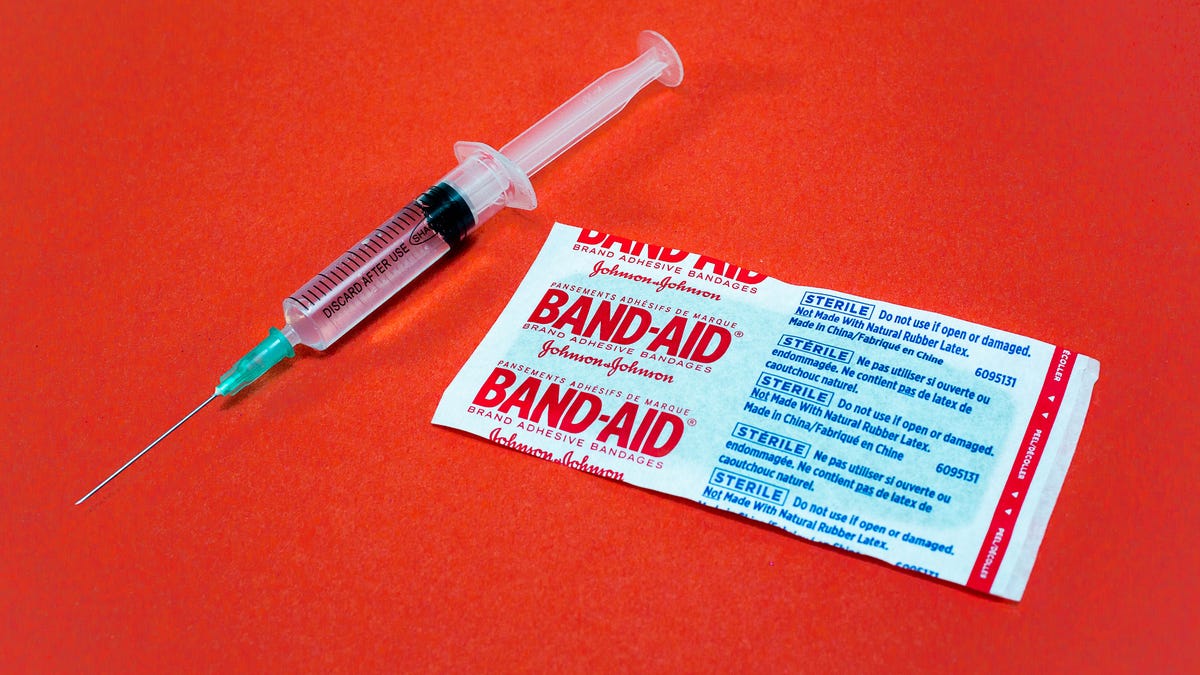 Why You Can Trust CNET
Why You Can Trust CNET What to Know About Flu Shot Side Effects
Vaccines prompt an immune response that can give some people some mild, completely normal side effects. Here's what to expect.

We might be in for a rough flu season this year in the US, if expert predictions are correct. But the good news is, we have very safe and effective tools for fighting and preventing the flu, caused by the potentially deadly influenza virus, including the flu vaccine.
According to the CDC, flu shots are safe and one of the best ways to keep from getting the flu and spreading it to others. And people who get vaccinated and get sick anyway often experience less severe symptoms. If you're thinking of getting vaccinated for both COVID-19 and the flu, the CDC says it is safe to get both vaccines together (this includes the new COVID-19 boosters).
The simple fact is, flu vaccines can save lives. There are plenty of myths out there about the flu vaccine, such as the idea that it can give you the flu. While that's not true, you can experience some side effects from the flu shot. The side effects are usually mild and nothing to worry about, but it's important to know about them so you're not worried when you get your vaccine.
Below, Dr. Carmen Teague, specialty medical director at Atrium Health's Mecklenburg Medical Group, shares what you need to know about common flu shot side effects that are normal, and which side effects may be a sign of something more serious.
Common flu shot side effects
Repeat: The flu vaccine won't give you the flu, but you can experience mild symptoms because of how the vaccine works.
"The flu vaccine is designed to stimulate your immune system to build antibodies to the virus. That stimulation can cause a low-grade fever, a decrease in appetite, loose stool, mild fatigue or myalgia (muscle ache) and even a scant cough," Teague said.
According to Teague, these symptoms usually resolve after a few days and are no cause for alarm. You may also experience some redness, swelling or soreness where the shot was injected, which is also normal.
The CDC says you can experience "flulike" symptoms after getting the vaccine, such as:
- Soreness, redness, and/or swelling at the injection site
- Headache
- Fever
- Nausea
- Muscle aches
The symptoms listed above should resolve in a few days. Also, keep in mind not everyone has symptoms, but those are the most common. When it comes to other symptoms, or symptoms that last longer, it's important to keep in mind that you can still catch a cold, or other virus, right after you get the flu shot.
So if you experience other symptoms that seem like the flu, it could be another illness and it doesn't mean the shot made you sick. The flu shot also takes about two weeks to become effective at protecting you from the flu, so you could technically catch the flu within that two-week window.
Signs of a more serious (but rare) reaction
"A very small percentage of people can have a true allergic reaction to the vaccine, including chest tightness, difficulty breathing, wheezing, facial or throat swelling and redness of the eyes," Teague said. If you experience these symptoms, you should seek medical attention immediately. Teague says severe allergic reactions usually happen within a few hours of getting the flu shot.
Signs of a severe allergic reaction, according to the CDC, can include:
- Difficulty breathing
- Hoarseness or wheezing
- Swelling around the eyes or lips
- Hives
- Paleness
- Weakness
- A fast heartbeat or dizziness
Another possible reaction is an infection where the shot was administered. "Patients can also develop an infection at the injection site, which is manifested as worsening redness, swelling, warmth and tenderness," Teague said. You should also seek immediate medical attention for this type of reaction. (If you're not sure if it's the common, harmless redness-and-swelling side effect or an infection, check with a doctor.)

